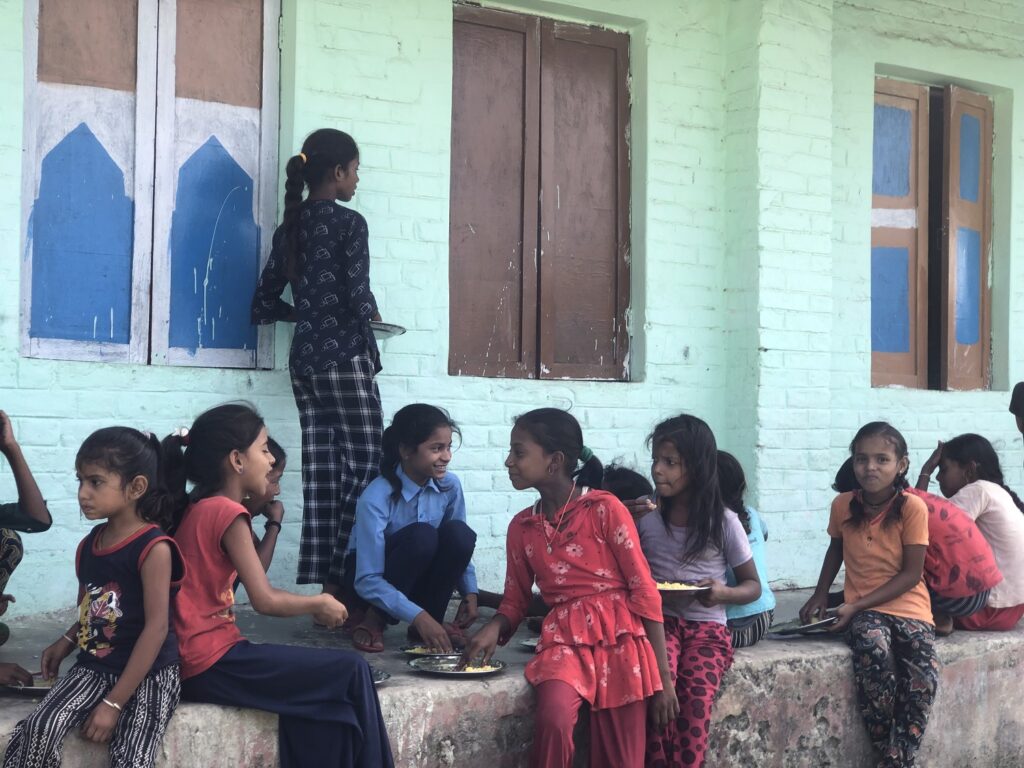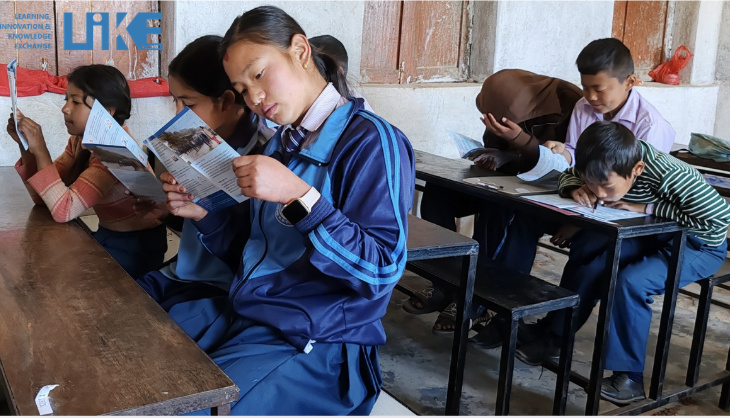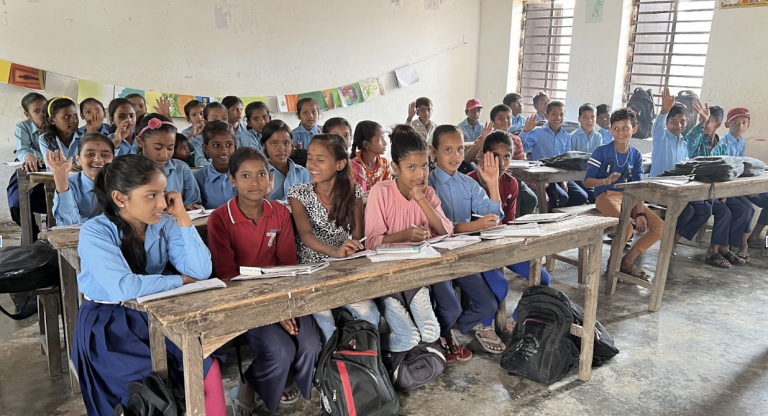Author: Hritika Kunwor
Social connections are vital for human beings to thrive in society. Our ability to interact with others, participate in social activities, and establish meaningful relationships is crucial for our overall well-being. Scholars like Martha Nussbaum and Amartya Sen recognize the significance of social relations, considering them as fundamental capabilities. To delve into the significance of social relationships among primary school children, we conducted focus group discussions on 5 schools of Yamunamai rural municipality, 3 schools of Durgabhagwati rural municipality, and 1 school of Rajdevi municipality of Rautahat district. It was a part of the research project “Effectiveness and Scalability of Programs for Children Who Are Out of School and at Risk of Dropping Out in Bangladesh, Bhutan, and Nepal,” supported by Global Partner for Education Knowledge & Innovation Exchange (GPEKIX) and International Development Research Center (IDRC).Through insights gathered sixteen focus group discussion, we discovered that both boys and girls valued social relationships greatly. These connections played a crucial role in motivating students to attend school regularly and positively impacted their overall experiences.
During a focus group discussion, it was revealed that the female participants had a preference for confiding in female teachers rather than their male counterparts when facing problems. The girls in the school shared a close bond with each other and felt at ease sharing their concerns with their female friends. They also highlighted that their female friends were particularly supportive and helpful when it came to addressing challenges specific to being girls. One respondent mentioned that her parents prohibited her from forming friendships with boys, but they did not impose any restrictions based on religion or caste when it came to friendships. The majority of the female participants emphasized the significance of social relationships in society, recognizing the strength and unity that arises from mutual support and collaborative efforts.

When the male participants were asked about their social relationships, they enthusiastically described the strong bonds they had formed with their friends, highlighting that their friendships were a driving force behind their consistent attendance at school. They emphasized having a larger circle of friends within the school setting compared to their social connections at home. They also mentioned the presence of female friends with whom they enjoyed playing and studying together. Importantly, they conveyed that their families were supportive and had no reservations or restrictions regarding their friendships with girls. In addition, the participants expressed that they felt comfortable approaching and seeking help from their teachers, as they found them understanding and approachable. They firmly believed that social relationships played a pivotal role in personal growth and thriving within society. Notably, several respondents specifically mentioned that they confided in their friends about matters they were hesitant to share with their parents or teachers, highlighting the deep trust and strong bonds they had established. This further emphasizes the significance of their relationships with their friends.
Social relationships hold an important position in the social and emotional development of individuals. Social relations encompass the connections we form with others in our day-to-day lives, including friends, family members, classmates, and teachers. Building relationships, including peer-to-peer and teacher-student connections, is crucial within the education system. Social relationships hold considerable importance for students due to several reasons. Firstly, they provide invaluable emotional support during challenging times. As students, we often experience stress stemming from academic pressure, social expectations, or personal difficulties. Having a robust support system in the form of social connections helps us navigate these obstacles and emerge resilient. Secondly, social relationships contribute to a sense of belonging and involvement. When we feel connected to others, we are more likely to actively participate in classroom activities, engage in extracurricular endeavors, and establish connections within our community. This heightened sense of connection leads to a more fulfilling and enjoyable school experience.



